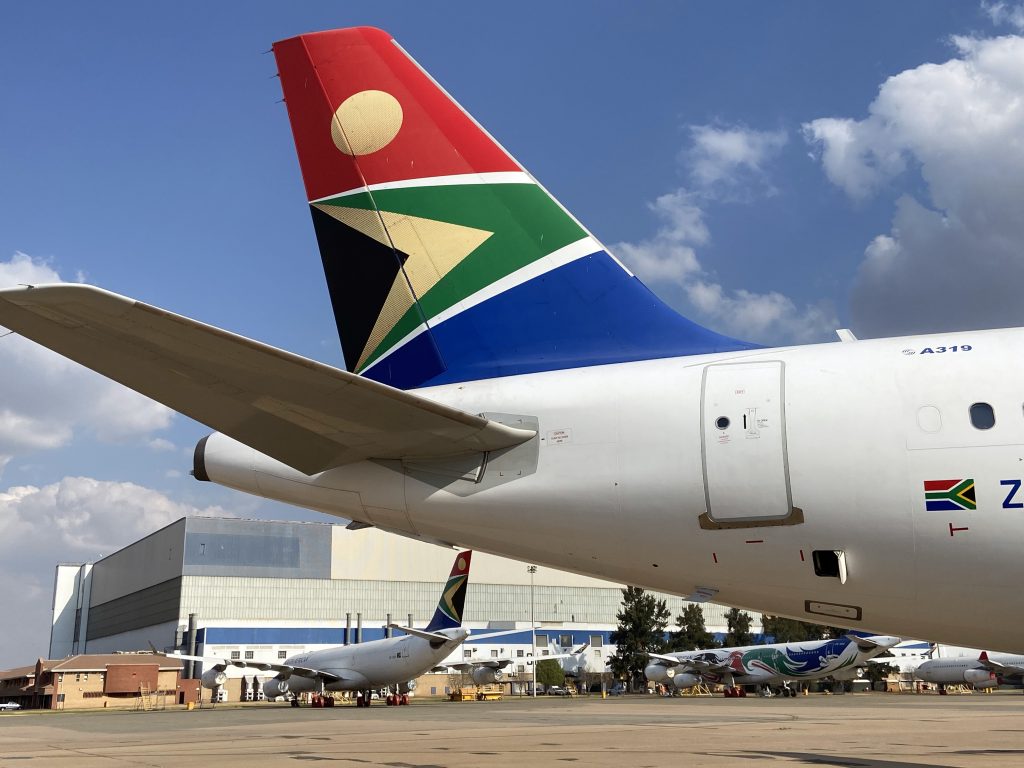As some of the world’s most powerful finance ministers meet at a beach-side resort in South Africa, this year’s Group of 20 host is trying to keep its agenda on course.
A global trade war, initiated by US President Donald Trump, and the acrimony it has wrought between major economies means that the group is struggling to keep its focus on South Africa’s stated aims, which include debt relief, sustainable finance and reforms to the world’s development-finance institutions.
ADVERTISEMENT
CONTINUE READING BELOW
That’s all complicated by the fact that the US, the world’s biggest economy, hasn’t sent its top officials to the events in South Africa this year, even though it’s due to take over the presidency of the group at the end of November.
“My hope is that we must have an agreement and emerge with a communique tomorrow,” South African Finance Minister Enoch Godongwana said in an interview with Bloomberg TV’s Jennifer Zabassaja. “It has been a difficult period.”
A European official separately voiced optimism that outstanding points of contention over communique language had been resolved and they expect it to be agreed on Friday.
Achieving a communique — rather than a chairman’s summary that was all South Africa could show from its two previous finance meetings — would be a significant statement of consensus from the G20 if Godongwana can get agreement amid the shock waves radiating from Washington.
By imposing trade tariffs globally, scorning South Africa’s G20 motto of “solidarity, equality and sustainability” and pulling billions of dollars in funding for climate finance and international aid, the US is testing a multilateral order that’s dominated global politics since the end of World War II.
A communique would be “a strong signal that multilateralism is still alive,” Haoliang Xu, acting administrator at the United Nations Development Programme, said in an interview. “While it may not be in full health, it’s alive.”
With near-daily announcements out of the White House disrupting global markets, there has been little room to discuss longer-term goals.
“These differences we see on tariffs and trade are not helpful for those efforts and these are extremely demanding and difficult issues,” Norwegian Finance Minister Jens Stoltenberg told Bloomberg. “A lot of energy and effort is now going into these trade issues and the capacity to find a consensus is limited.”
A Japanese finance ministry official said many countries noted that market stress had eased and risks to the global economy have not materialised as expected, while cautioning that ongoing uncertainty means that vigilance is still necessary.
The turmoil has dented attendance by top officials at the event in a lush, tropical estate on the outskirts of Durban, South Africa’s third-biggest city, where delegates can gaze at the Indian Ocean and watch vervet monkeys clamber across rooftops.
In addition to US Treasury Secretary Scott Bessent, notable absentees included French Finance Minister Eric Lombard and his Argentinean and Australian counterparts, Luis Caputo and Katy Gallagher. A number of other national finance heads also skipped the event.
Still, sources from several delegations, who spoke on the condition of not being identified to discuss private deliberations, said there was agreement on a number of matters that will be covered in the final statement, including the treatment of debt and infrastructure.
ADVERTISEMENT:
CONTINUE READING BELOW
“Despite the challenges around the tariff situation, I feel that people today in the discussions, we know there are differences but there is a lot we can do together,” Canadian Finance Minister Francois-Philippe Champagne told Bloomberg when asked if there would be a communique.
Sticking points
South Africa’s Godongwana said that sustainability finance and global trade imbalances were the key sticking points.
“The US has taken view on climate change, on climate finance and all of those issues and therefore bringing that stuff into the debate at the G-20 created a difficult task for us,” he said. Also, the Chinese delegation sees references to “global imbalances” as references to Beijing, which is a “major issue,” he said.
There is agreement on many matters, said three people familiar with the South African government’s thinking. But it aims to build on the G-20 meetings of recent years rather than trying to break new ground, because there is still much to be implemented from earlier agreements, they said.
Too timid
That approach has attracted some criticism from activists.
“We need to see the level of boldness raised substantially,” said Jenny Ricks, general secretary at the Fight Inequality Alliance. “You cannot be held to ransom by one of the members of the G20. Even though of course they are economically, politically the most powerful member.”
Still, Godongwana remained optimistic that participants will reach an agreement.
While the US didn’t send its top officials, those who came have “a clear mandate” to speak on behalf of their government, he said.
“We are closer to making a deal and achieving a consensus that will emerge as a communique,” he said. “I suspect” a communique will emerge, he added.
© 2025 Bloomberg
Follow Moneyweb’s in-depth finance and business news on WhatsApp here.

 6 hours ago
1
6 hours ago
1






















 English (US) ·
English (US) ·